
Kaduna: The Heartbeat of Northern Nigeria
Kaduna, a vibrant city located in the heart of Northern Nigeria, is a cultural melting pot and an intriguing destination for tourists. Known for its rich history, diverse culture, and welcoming locals, Kaduna offers a unique blend of traditional and modern attractions. One of the city's highlights is the Kaduna National Museum, where you can explore fascinating artifacts and exhibits that tell the story of Nigeria's heritage. The museum is a treasure trove for history enthusiasts and provides valuable insights into the region's past. Nature lovers will find solace in the lush green spaces of Kaduna. The iconic Kajuru Castle, a medieval-style fortress perched on a hill, offers breathtaking views and the perfect spot for a day trip. For a more relaxed outing, head to Gamji Gate Park, a serene park ideal for picnics and leisurely strolls. Kaduna is also known for its vibrant markets, such as the Kaduna Central Market, where you can experience the bustling atmosphere and shop for local crafts, textiles, and spices. The city's culinary scene is diverse, with numerous restaurants offering traditional Nigerian dishes and international cuisine. Whether you're interested in history, nature, shopping, or food, Kaduna has something to offer every traveler. Its unique charm and friendly atmosphere make it a must-visit destination in Nigeria.
Local tips in Kaduna
- Visit the Kaduna National Museum early in the day to avoid crowds and make the most of your visit.
- Carry cash when shopping at local markets, as many vendors do not accept credit cards.
- Dress modestly, especially when visiting religious sites, to respect local customs and traditions.
- Try the local delicacies such as Suya (spicy grilled meat) and Masa (rice cakes) for an authentic taste of Kaduna.
- Hire a local guide for a more immersive experience and to get insider knowledge about the city's history and culture.
Kaduna: The Heartbeat of Northern Nigeria
Kaduna, a vibrant city located in the heart of Northern Nigeria, is a cultural melting pot and an intriguing destination for tourists. Known for its rich history, diverse culture, and welcoming locals, Kaduna offers a unique blend of traditional and modern attractions. One of the city's highlights is the Kaduna National Museum, where you can explore fascinating artifacts and exhibits that tell the story of Nigeria's heritage. The museum is a treasure trove for history enthusiasts and provides valuable insights into the region's past. Nature lovers will find solace in the lush green spaces of Kaduna. The iconic Kajuru Castle, a medieval-style fortress perched on a hill, offers breathtaking views and the perfect spot for a day trip. For a more relaxed outing, head to Gamji Gate Park, a serene park ideal for picnics and leisurely strolls. Kaduna is also known for its vibrant markets, such as the Kaduna Central Market, where you can experience the bustling atmosphere and shop for local crafts, textiles, and spices. The city's culinary scene is diverse, with numerous restaurants offering traditional Nigerian dishes and international cuisine. Whether you're interested in history, nature, shopping, or food, Kaduna has something to offer every traveler. Its unique charm and friendly atmosphere make it a must-visit destination in Nigeria.
When is the best time to go to Kaduna?
Iconic landmarks you can’t miss
Murtala Square Stadium
Experience the vibrant sporting culture at Murtala Square Stadium, a key landmark in Kaduna, Nigeria, where excitement and community spirit come alive.
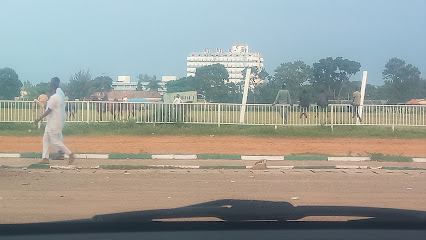
SIDI & SONS SUPER MARKET
Discover local flavors and everyday essentials at Sidi & Sons Supermarket in Kaduna, a vibrant shopping destination for tourists.
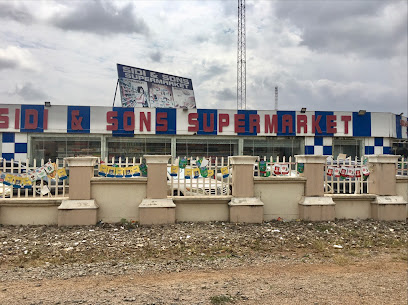
Asaa Pyramid Hotel
Experience comfort and local culture at Asaa Pyramid Hotel in Kaduna, a perfect retreat for travelers seeking modern amenities in a serene environment.

Ahmadu Bello Stadium
Experience the electrifying atmosphere of Ahmadu Bello Stadium in Kaduna, a cultural hub for sports enthusiasts and a symbol of local pride.
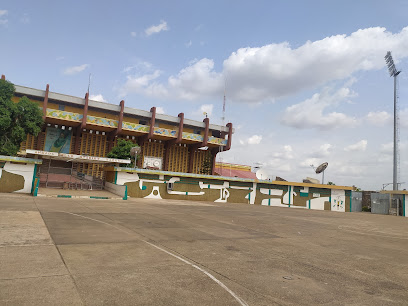
Abubakar Gumi Central Market Kaduna
Explore the vibrant Abubakar Gumi Central Market in Kaduna, where local culture, colorful crafts, and delicious cuisine come together in a unique shopping experience.
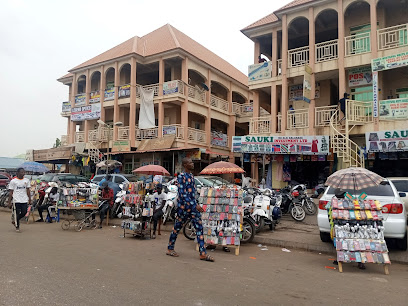
Stadium Roundabout
Discover the vibrant spirit and rich history of Kaduna at Stadium Roundabout, a cultural hub and historical landmark in the city.
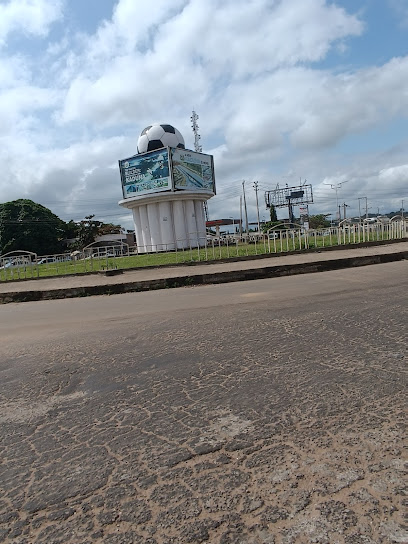
Karji Junction
Discover the vibrant heart of Kaduna at Karji Junction, a bustling market filled with local crafts, delicious street food, and a rich cultural experience.
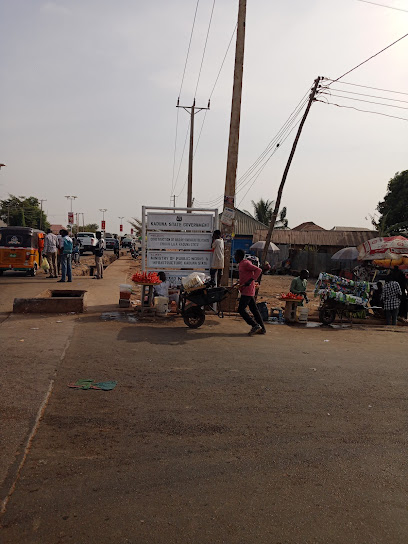
AREWA House
Discover the rich cultural heritage of northern Nigeria at AREWA House, a historical museum celebrating diverse traditions and history.
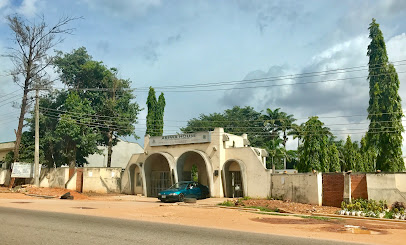
National Commission for Museums and Monuments, Kaduna.
Explore the National Commission for Museums and Monuments in Kaduna for an unforgettable journey through Nigeria's rich cultural history and heritage.
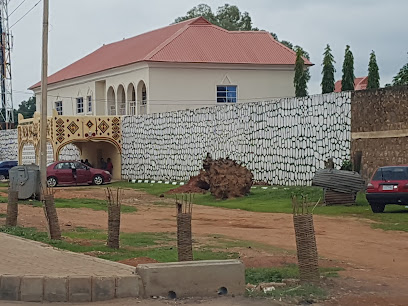
Chimcherry Hotel Limited
Discover comfort and local culture at Chimcherry Hotel Limited in Kaduna, a perfect base for exploring Nigeria's rich heritage.

Shifu Restaurant And Lounge
Discover an exquisite culinary experience at Shifu Restaurant And Lounge in Kaduna, where local flavors meet international cuisine in a stunning rooftop setting.
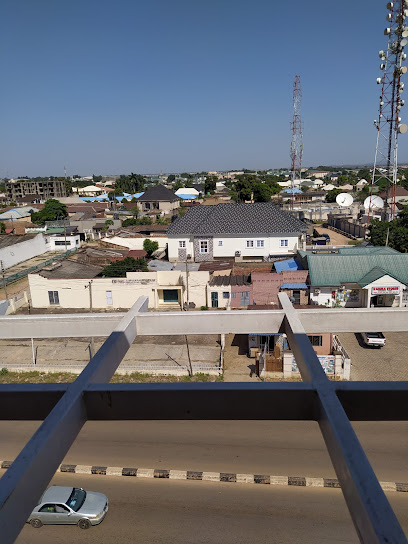
Catholic Social Centre
Experience the warmth of Kaduna at the Catholic Social Centre, where hospitality meets community in a vibrant and serene setting.
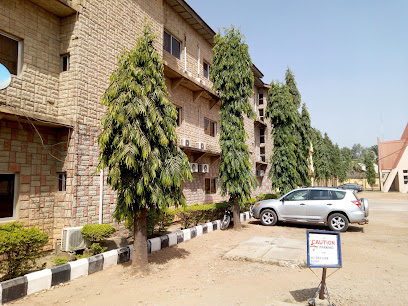
PLOUTOS CLUB HOUSE..
Experience the vibrant atmosphere of Ploutos Club House in Kaduna, a premier recreation center offering fun, relaxation, and delicious dining options.
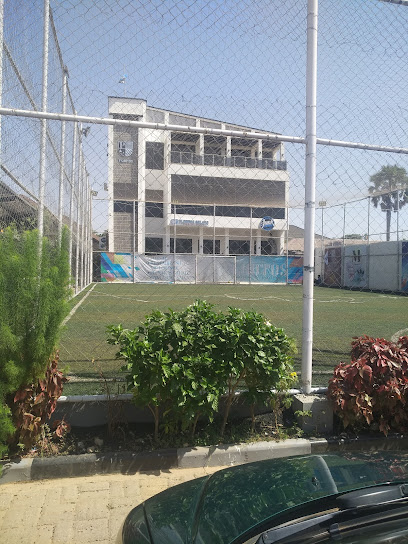
MicroManna Ltd
Explore cutting-edge technology and enriching computer training at MicroManna Ltd, Kaduna's premier electronics store and tech hub.
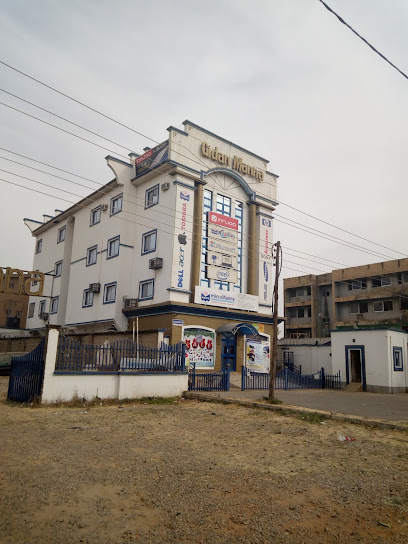
Splash Park formerly Kofar Gamji Park
Experience the charm of Splash Park in Kaduna, where lush greenery meets fun-filled activities for all ages.
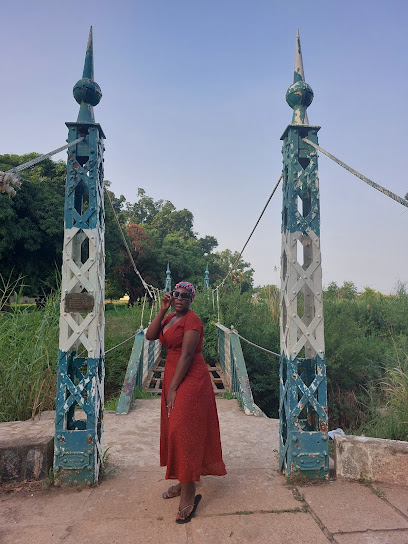
Unmissable attractions to see
AREWA House
Explore the historical treasures of Northern Nigeria at AREWA House, a captivating museum showcasing rich cultural heritage and traditions.
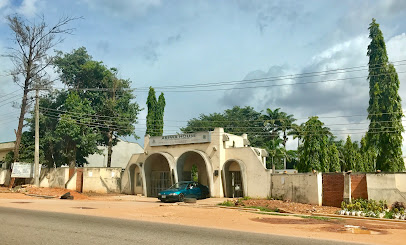
National Commission for Museums and Monuments, Kaduna.
Explore the National Commission for Museums and Monuments in Kaduna, Nigeria, a cultural haven showcasing the country's rich heritage and history.
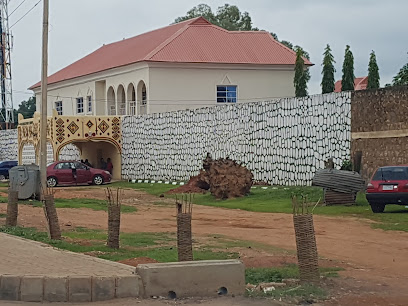
Splash Park formerly Kofar Gamji Park
Discover Splash Park in Kaduna, a vibrant family-friendly destination with thrilling water attractions and lush picnic areas for a perfect day of relaxation.
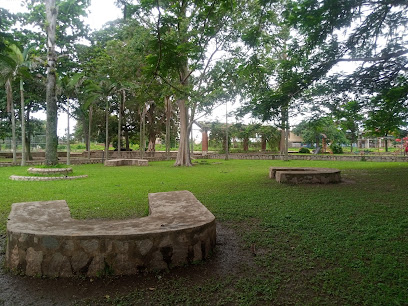
Bridge park and event's
Discover the serene beauty and vibrant cultural scene at Bridge Park, Kaduna's premier destination for relaxation and entertainment.
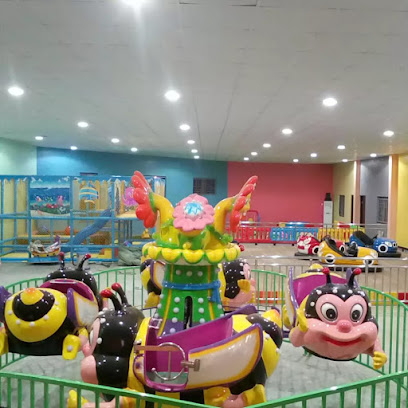
Barnawa Paradise Park
Experience the natural beauty and diverse recreational activities at Barnawa Paradise Park in Kaduna, a perfect destination for relaxation and fun for all ages.
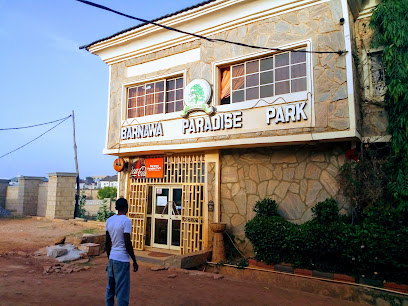
Centenary Park
Discover the tranquil beauty of Centenary Park in Kaduna, a lush green retreat perfect for relaxation, picnics, and cultural engagement.
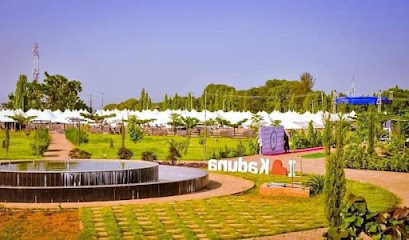
Alpha Games
Discover tranquility at Alpha Games Park in Kaduna, a lush green retreat ideal for relaxation, family outings, and cultural experiences.
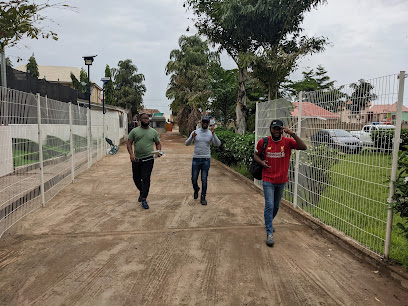
Abigail Garden Park
Discover the natural beauty and tranquility of Abigail Garden Park, a serene escape in Kaduna perfect for relaxation and family outings.
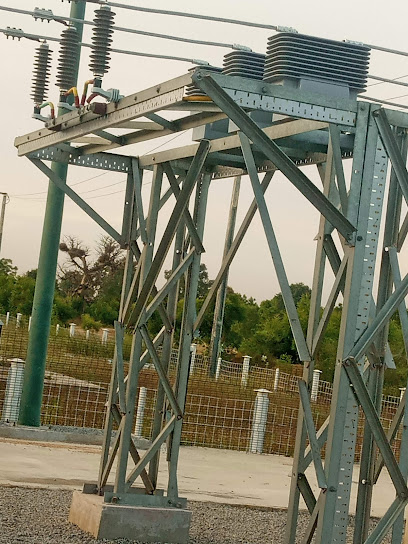
WATER INTAKE RIVER SIDE (ROCK)
Experience the natural beauty and tranquility of Water Intake River Side in Kaduna South, a perfect escape for nature lovers and peace seekers.
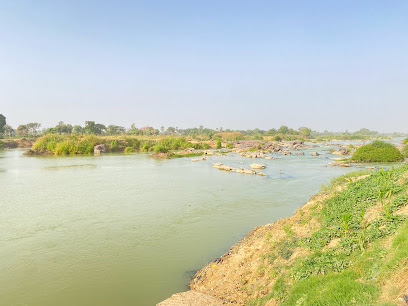
Fun Galaxy
Experience the thrill of gaming at Fun Galaxy, Kaduna's premier video arcade offering endless fun for all ages.
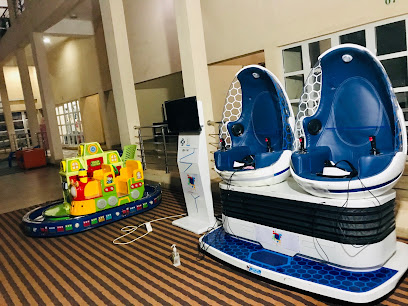
69 Garage
Explore the serene beauty of 69 Garage Park in Kaduna, Nigeria, a perfect escape for nature lovers and a glimpse into local culture.
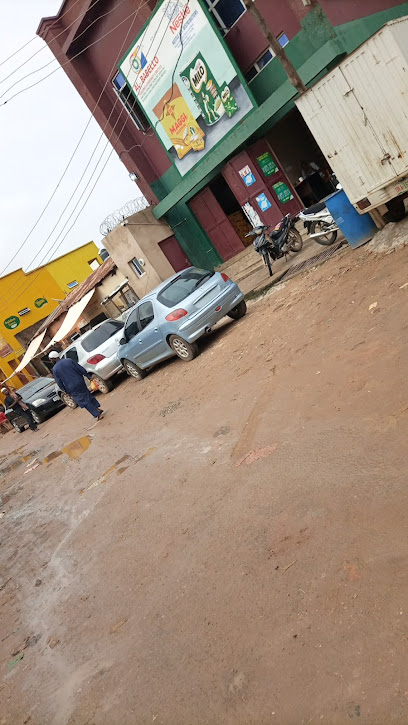
Innasplantparadise
Discover the serene beauty of Innasplantparadise, a lush garden in Nasarawa perfect for relaxation, exploration, and nature appreciation.
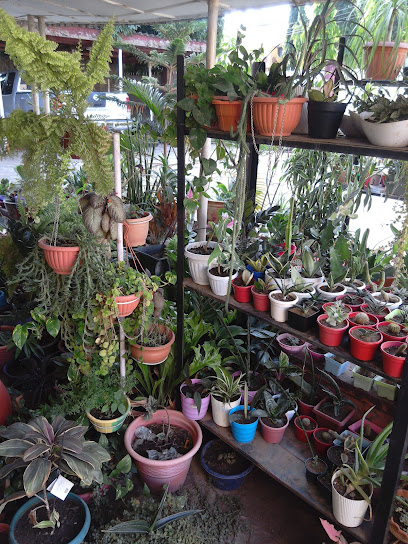
Goshen Memorial Garden
Discover tranquility at Goshen Memorial Garden in Kaduna, a lush park perfect for relaxation, family outings, and enjoying nature's beauty.
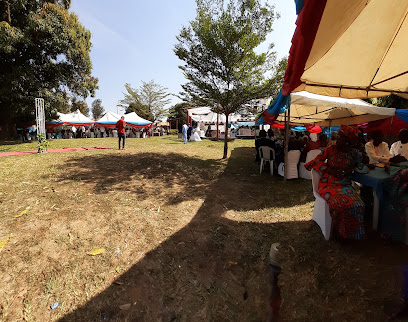
Nature is life
Explore the lush landscapes and vibrant wildlife at Nature is Life Nature Preserve in Kurmin Mashi, the perfect escape for nature enthusiasts.
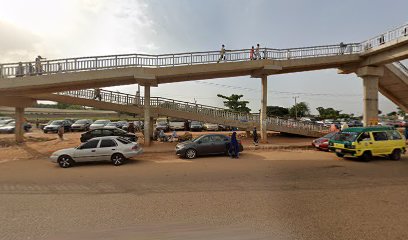
Rowin Garden
Discover tranquility at Rowin Garden in Kaduna, a beautiful green space perfect for relaxation and family outings amidst vibrant flora.
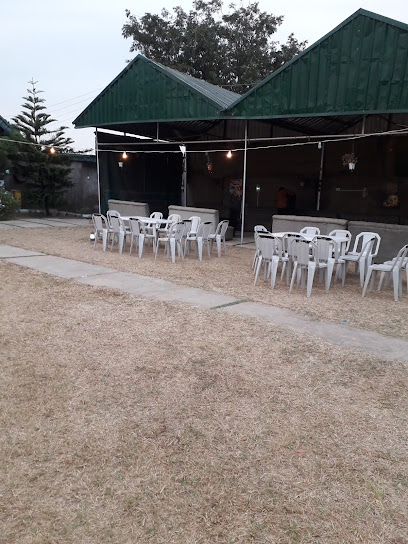
Essential places to dine
Disney Chicken
Experience delightful fast food at Disney Chicken in Kaduna - where flavor meets comfort in every bite.
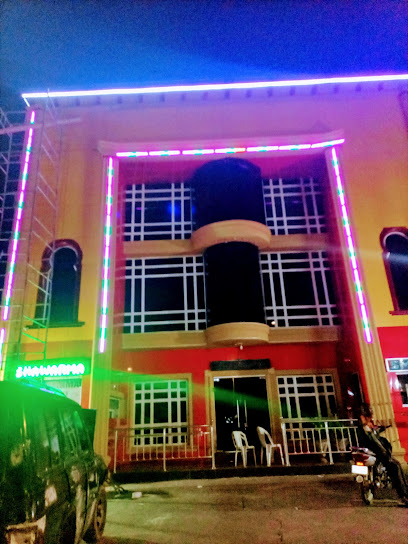
Iyawo Restaurant
Experience authentic Nigerian cuisine at Iyawo Restaurant in Kaduna - where traditional flavors meet modern dining.
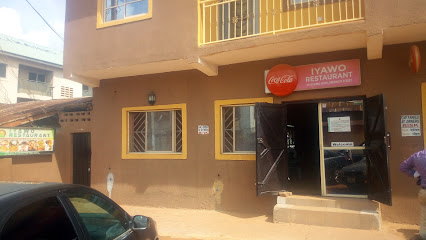
Westpoint Eatery
Discover culinary excellence at Westpoint Eatery in Kaduna – where local flavors meet international cuisine in a cozy setting.
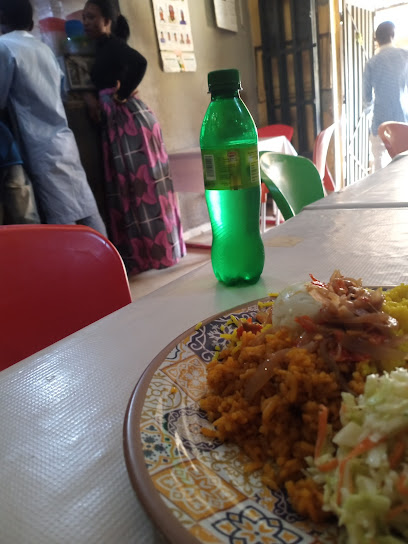
Regency Eatery & Confectioneries
Discover exquisite breakfast and delightful treats at Regency Eatery & Confectioneries in Kaduna, Nigeria – a culinary gem worth exploring.
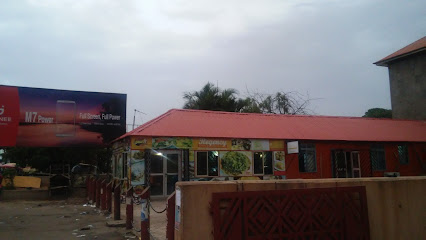
Tawakalitu Resturant
Experience authentic Nigerian flavors at Tawakalitu Restaurant in Kaduna – A culinary delight waiting to be discovered.
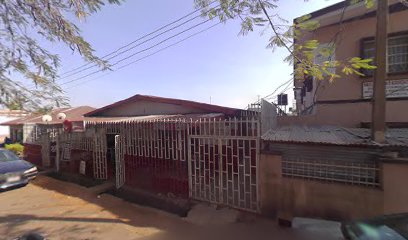
Gwandu Restaurant
Experience authentic Nigerian cuisine at Gwandu Restaurant in Kaduna – where flavor meets tradition in a warm setting.
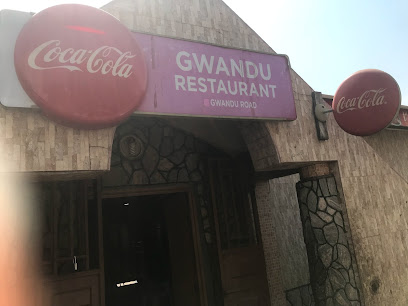
Destiny Restaurant
Experience authentic Nigerian cuisine at Destiny Restaurant in Kaduna – where every meal tells a story.
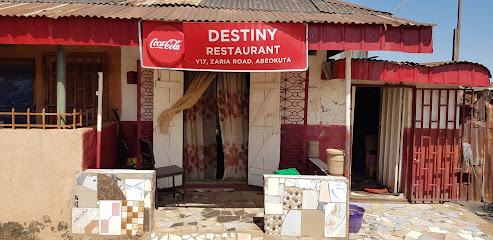
Grilled Restaurant
Discover the rich flavors of Nigerian cuisine at Grilled Restaurant in Kaduna - a delightful breakfast spot with grilled specialties.
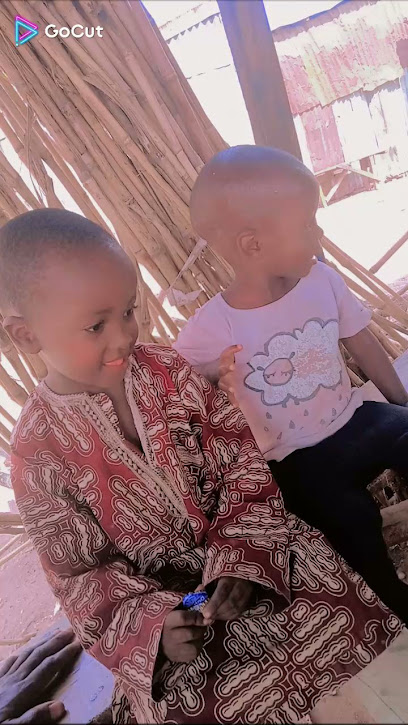
Iya Idiyat Restaurant
Discover authentic Nigerian cuisine at Iya Idiyat Restaurant in Kakuri, Kaduna – where every meal tells a story.
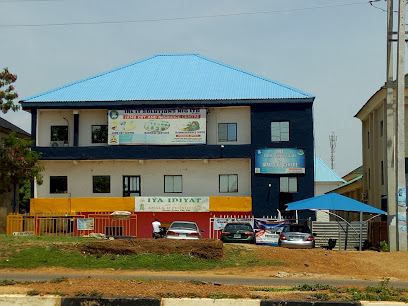
Baba Haru Restaurant
Experience the authentic taste of Nigeria at Baba Haru Restaurant in Kaduna, where every meal is a celebration of local flavors.
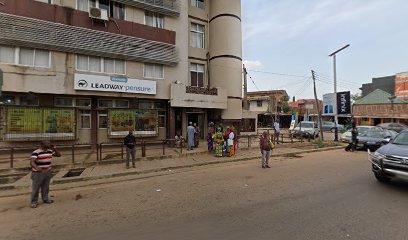
De Joy Restaurant
Experience authentic Nigerian cuisine at De Joy Restaurant in Kaduna - where traditional flavors meet modern dining.
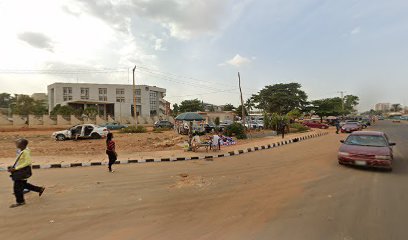
Delish Restaurant
Experience the authentic taste of Nigeria at Delish Restaurant in Kaduna – where every meal tells a story.

SPECTAL RESTAURANT
Discover authentic Nigerian cuisine at SPECTAL RESTAURANT in Tudun Wada—where flavors meet hospitality for an unforgettable dining experience.
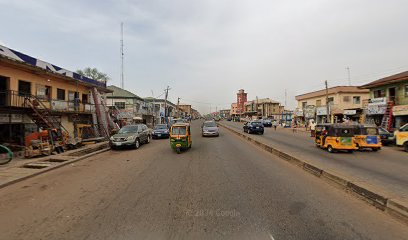
Sauki Restaurant
Discover authentic Nigerian cuisine at Sauki Restaurant in Kaduna – where every dish tells a story of tradition and flavor.
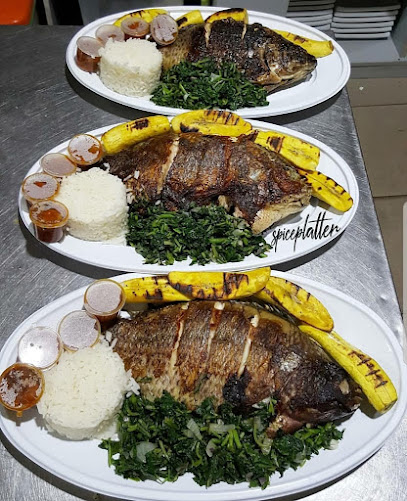
De Eatery African And Continental Dishes
Experience the vibrant flavors of Africa at De Eatery - your go-to destination for authentic African and continental cuisine in Kaduna.
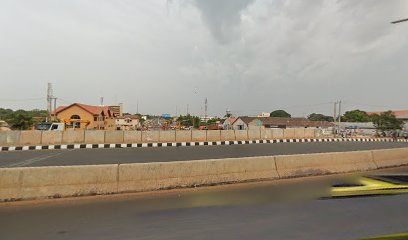
Markets, malls and hidden boutiques
Makarfi Plaza.
Discover Makarfi Plaza in Kaduna, a vibrant shopping mall filled with electronics, fashion, and local culture, perfect for every tourist's shopping spree.
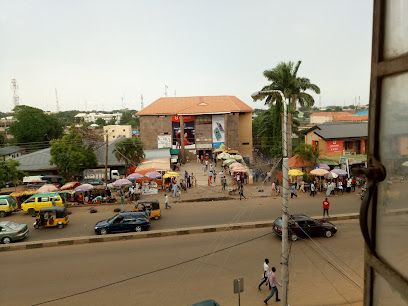
Dalema Supermarket
Discover the vibrant shopping experience at Dalema Supermarket in Kaduna, where local culture and essentials meet under one roof.
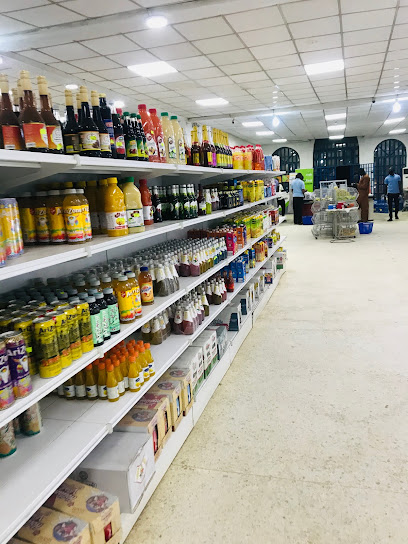
ASD CITY MALL
Experience shopping, dining, and entertainment all in one place at ASD City Mall, the heart of Kaduna's retail scene.
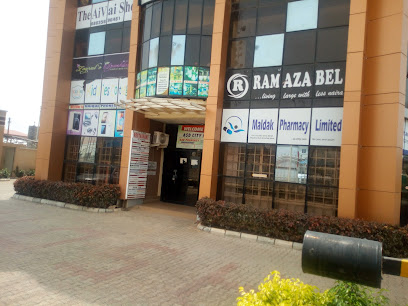
Mudatex Mudassir and Brothers Kaduna
Discover a vibrant shopping haven in Kaduna at Mudatex Mudassir and Brothers, where fabrics and lifestyle products blend beautifully.
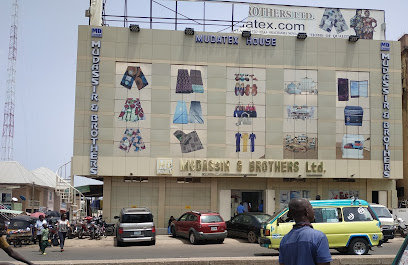
Doka Plaza (wholesale shopping)
Explore Doka Plaza in Kaduna for a unique wholesale shopping experience, offering local delicacies, textiles, and handcrafted treasures.
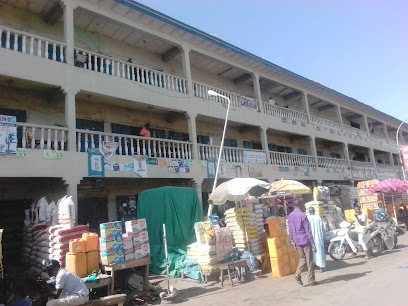
Kaduna Capital Plaza
Discover the heart of Kaduna at the lively Kaduna Capital Plaza - a shopping and dining paradise blending culture and modernity.
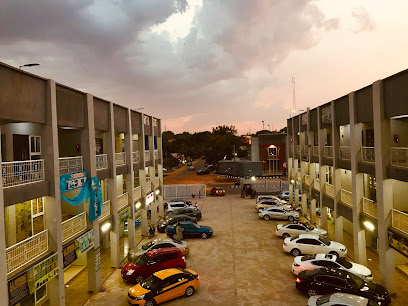
ABC STORES
Explore ABC Stores in Kaduna for a vibrant shopping experience filled with local products and friendly service.
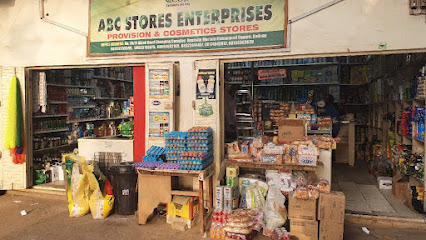
KHEMSAFE COMPUTER AND COMMUNICATIONS LTD KADUNA
Explore Khemsafe Computer and Communications Ltd in Kaduna for top-notch tech services and products at competitive prices.
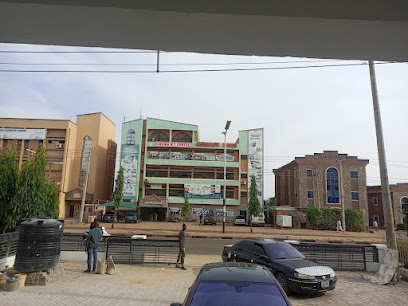
NNDC MALL
Discover the vibrant NNDC Mall in Kaduna, Nigeria – your ultimate shopping, dining, and entertainment destination for an unforgettable experience.
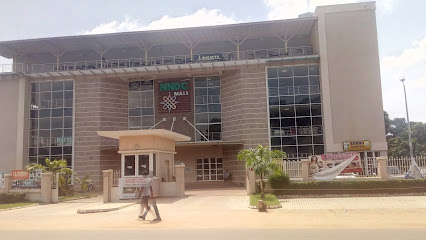
PEP Kaduna
Discover stylish and affordable clothing for the whole family at PEP Kaduna, where fashion meets value in the heart of Kaduna.
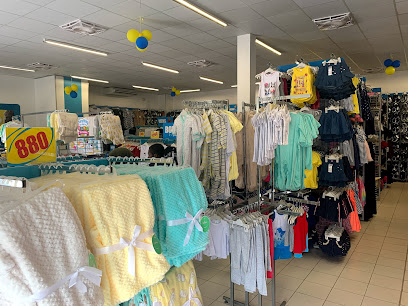
Shop
Experience the vibrant heart of shopping in Kaduna with a mix of local crafts, delicious cuisine, and a lively atmosphere at the city's premier shopping mall.
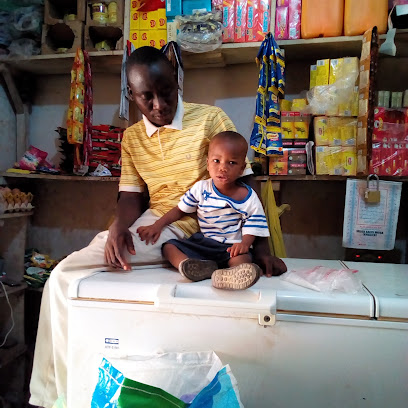
Mon Ami Cakes
Experience the sweetness of life at Mon Ami Cakes, where every dessert is a masterpiece waiting to be savored.
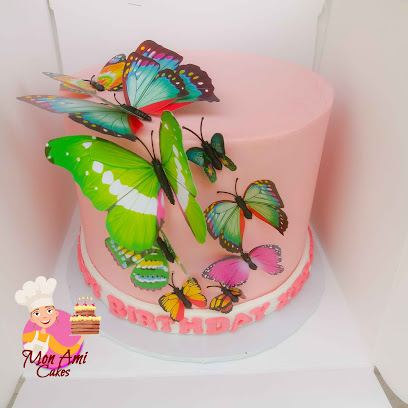
RITY BAKERY
Discover the irresistible charm of RITY Bakery in Kaduna, where fresh pastries and breads await to delight your taste buds.
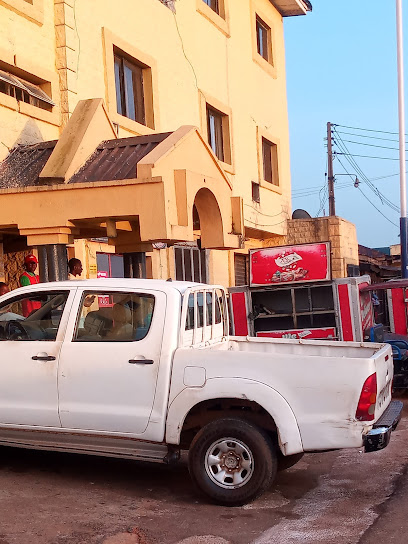
Galaxy Mall
Discover shopping, dining, and entertainment at Galaxy Mall, the vibrant heart of Kaduna offering a unique experience for all visitors.
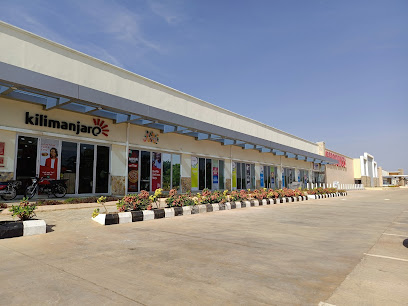
Asada Shopping Complex
Discover shopping, dining, and cultural experiences at Asada Shopping Complex in Kaduna, Nigeria.
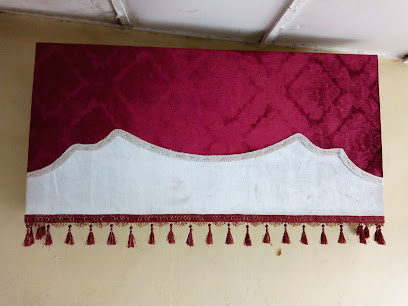
Essential bars & hidden hideouts
Swiss Lounge
Discover Swiss Lounge in Kaduna, where vibrant nightlife meets a relaxing atmosphere, offering a delightful mix of local and international cuisines.
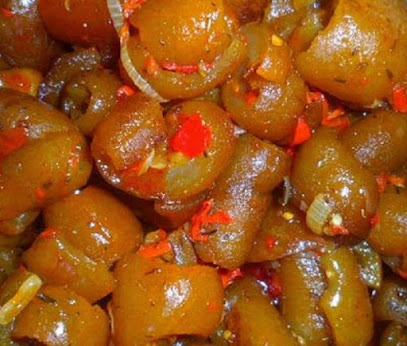
Night Clubs And Bars
Experience the vibrant nightlife of Barnawa with a mix of local flavors, refreshing drinks, and electrifying music, perfect for a night out in Kaduna.
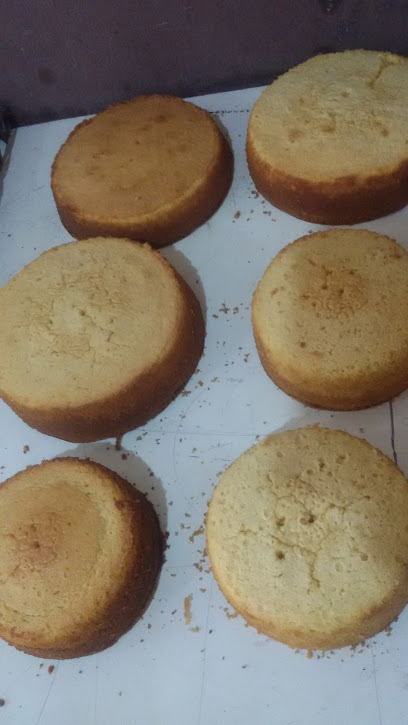
DiDi Park and Lounge
Experience relaxation and fun at DiDi Park and Lounge, a perfect recreation center in Kaduna for families and friends alike.
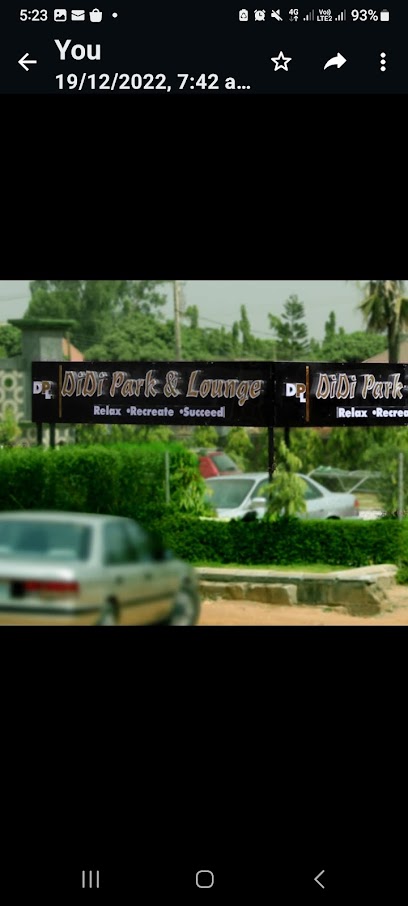
Unity Cool Spot
Discover Unity Cool Spot in Kaduna, where vibrant drinks and a welcoming atmosphere create the perfect spot to unwind and socialize.
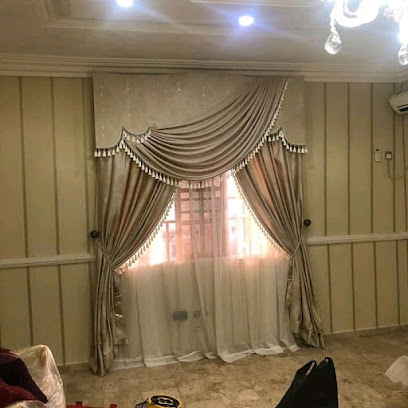
Jufresh
Discover the vibrant nightlife at Jufresh, the premier bar in Kakuri, Kaduna, offering a delightful array of drinks and live entertainment.
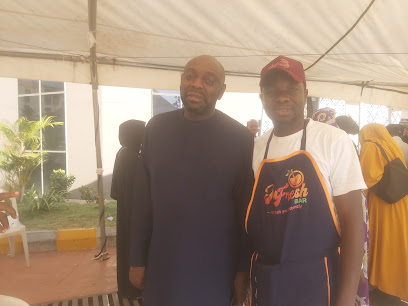
BA PRINT
Discover BA PRINT, a lively bar in Doka, Kaduna, where vibrant atmosphere meets local charm for an unforgettable night out.
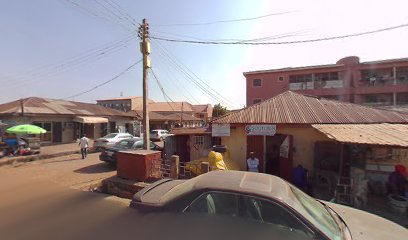
Osy Cool Joint
Experience the lively atmosphere and local flavors at Osy Cool Joint in Kaduna Junction, a must-visit bar for tourists seeking authentic nightlife.

White Chairs Bars Restaurant
Discover authentic culinary experiences at White Chairs Bars Restaurant in Kaduna, where local flavors meet exceptional service in a vibrant atmosphere.

Ethonia Cool Spot
Discover the nightlife of Kaduna at Ethonia Cool Spot, where local culture meets vibrant bar entertainment in a lively atmosphere.
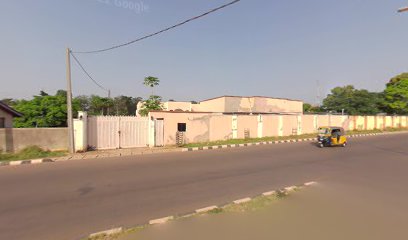
Omeje Global Services Ltd.
Dive into the vibrant nightlife of Kaduna at Omeje Global Services Ltd., a lively girl bar perfect for drinks, entertainment, and local culture.
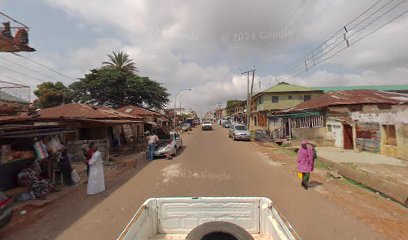
Heros Cool Spot
Discover the vibrant atmosphere and delightful drinks at Heros Cool Spot, the perfect bar in Kaduna for relaxation and socializing.
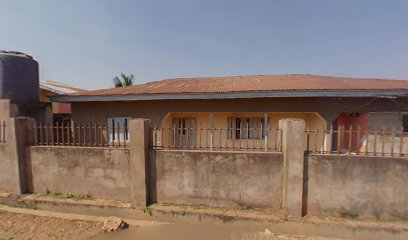
Linda Kwasau Cool Joint
Discover the vibrant culture of Kaduna Junction at Linda Kwasau Cool Joint, a lively bar serving refreshing drinks and delicious local cuisine.

Akwa Cross Cool Spot
Discover the vibrant nightlife of Kaduna at Akwa Cross Cool Spot, where refreshing drinks and a lively atmosphere await you.

1159 Bar
Experience the vibrant nightlife of Kaduna at 1159 Bar, where local culture meets great drinks and lively entertainment.
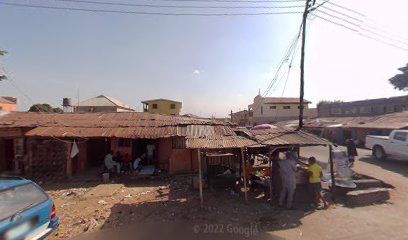
Local Phrases
-
- HelloSannu
[sah-noo] - GoodbyeSai anjima
[sigh ahn-jee-mah] - YesEh
[eh] - NoA'a
[ah-ah] - Please/You're welcomeDa so
[dah soh] - Thank youNa gode
[nah goh-deh] - Excuse me/SorryZan bata, kasan
[zahn bah-tah, kah-sahn] - How are you?Kana lafiya?
[kah-nah lah-fee-yah] - Fine. And you?Lafiya. Kana lafiya?
[lah-fee-yah. kah-nah lah-fee-yah] - Do you speak English?Kaje magana tafiya?
[kah-jay mah-gah-nah tah-fee-yah] - I don't understandBa na fahimci
[bah nah fah-heem-chee]
- HelloSannu
-
- I'd like to see the menu, pleaseIna son duba menu, don Allah
[ee-nah sohn doo-bah meh-noo, dohn ah-lah] - I don't eat meatBa na ci nama
[bah nah chee nah-mah] - Cheers!Tashi!
[tah-shee] - I would like to pay, pleaseIna son yiwa, don Allah
[ee-nah sohn yee-wah, dohn ah-lah]
- I'd like to see the menu, pleaseIna son duba menu, don Allah
-
- Help!Yi mana godiya!
[yee mah-nah goh-dee-yah] - Go away!Zo kusa!
[zoh koo-sah] - Call the Police!Gani gadi!
[gah-nee gah-dee] - Call a doctor!Gani dokin
[gah-nee doh-keen] - I'm lostNa kasa
[nah kah-sah] - I'm illNa da tsoro
[nah dah tsoh-roh]
- Help!Yi mana godiya!
-
- I'd like to buy...Ina son sayawa...
[ee-nah sohn sah-yah-wah] - I'm just lookingNa tafi gani
[nah tah-fee gah-nee] - How much is it?Shi ne kadai?
[shee neh kah-dah-ee] - That's too expensiveWannan yana da kyau
[wahn-nahn yah-nah dah kyow] - Can you lower the price?Zaka iya sake fama?
[zah-kah ee-yah sah-keh fah-mah]
- I'd like to buy...Ina son sayawa...
-
- What time is it?Yau anan yake?
[yah-oo ah-nahn yah-keh] - It's one o'clockYa biyu ne
[yah bee-yoo neh] - Half past (10)Biyu da bakwai
[bee-yoo dah bah-kwah-ee] - MorningYamma
[yahm-mah] - AfternoonYamma
[yahm-mah] - EveningYamma
[yahm-mah] - YesterdayJibi
[jee-bee] - TodayYau
[yah-oo] - TomorrowGobe
[goh-beh] - 1Daya
[dah-yah] - 2Biyu
[bee-yoo] - 3Uku
[oo-koo] - 4Huɗu
[hoo-doo] - 5Biɗa
[bee-dah] - 6Shida
[shee-dah] - 7Bakwai
[bah-kwah-ee] - 8Takwas
[tah-kwahs] - 9Tara
[tah-rah] - 10Goma
[goh-mah]
- What time is it?Yau anan yake?
-
- Where's a/the...?Ina...
[ee-nah] - What's the address?Adireshin ya ke?
[ah-dee-reh-sheen yah keh] - Can you show me (on the map)?Zaka iya nuna min (a cikin rubutu)?
[zah-kah ee-yah noo-nah meen (ah chee-keen roo-boo-too)] - When's the next (bus)?Yau anan zai zo (motar)?
[yah-oo ah-nahn zah-ee zoh (moh-tahr)] - A ticket (to ....)Tikiti (zuwa ....)
[tee-kee-tee (zoo-wah ....)]
- Where's a/the...?Ina...
History of Kaduna
-
Kaduna was founded by the British colonial administration in the early 20th century. It was established in 1913 as a garrison town and administrative center. The name 'Kaduna' is derived from the Hausa word for 'crocodiles', which were indigenous to the region along the Kaduna River.
-
In 1917, Kaduna became the capital of the then Northern Region, replacing Zungeru. This move marked a significant turning point in its development, transforming it into a major administrative and logistics hub. The establishment of the Nigerian Railway Corporation's headquarters in Kaduna further fueled its growth.
-
Kaduna played a crucial role during Nigeria's struggle for independence. It was a hotbed for political activities, with significant figures like Ahmadu Bello, the Sardauna of Sokoto, using the city as a base for mobilizing support. The Northern People's Congress (NPC), a key political party in Nigeria's pre-independence history, was headquartered in Kaduna.
-
Post-independence, Kaduna emerged as one of Nigeria's major industrial centers. The establishment of several textile factories, manufacturing plants, and oil refineries in the 1960s and 1970s spurred economic growth. Kaduna became known for its thriving industries, contributing significantly to Nigeria's economy.
-
Kaduna is a melting pot of various ethnic groups and religions. It is home to the Hausa, Fulani, Yoruba, Igbo, and many other ethnic communities. The city is also notable for its religious diversity, with substantial Muslim and Christian populations. This diversity has sometimes led to tensions, but it also enriches the cultural fabric of the city.
-
Kaduna has experienced several periods of religious and ethnic conflict, most notably the Kaduna Riots of 2000. These riots were sparked by the introduction of Sharia law in the state, leading to violent clashes between Muslim and Christian communities. The events of 2000 are a poignant reminder of the challenges of managing diversity in the city.
-
Kaduna boasts several cultural landmarks and heritage sites. The Kaduna Museum, established in 1975, showcases a rich collection of artifacts that tell the story of Nigeria's history and culture. Other notable landmarks include Lugard Hall, the Arewa House, and the iconic Kaduna Railway Station, each contributing to the city's historical narrative.
-
Today, Kaduna is a vibrant city that continues to evolve. It remains a vital economic and cultural center in Nigeria, with ongoing developments in infrastructure, education, and commerce. The city hosts numerous cultural festivals and events, reflecting its dynamic and diverse character.
Kaduna Essentials
-
Kaduna is accessible via several means of transportation. The Kaduna International Airport (KAD) serves as the primary gateway for international and domestic flights, located about 22 kilometers northwest of the city center. From the airport, you can take a taxi or use ride-hailing services to reach your destination in Kaduna. Additionally, the city is well-connected by road and rail. The Kaduna-Abuja Expressway is a major route for those traveling by car or bus from Abuja, Nigeria's capital, which is approximately 200 kilometers away. The Nigerian Railway Corporation operates trains from Lagos and Kano to Kaduna, offering an alternative mode of transportation.
-
In Kaduna, transportation options include taxis, buses, and motorcycle taxis (commonly known as okadas). Taxis and ride-hailing services like Uber and Bolt are convenient for short trips within the city. Buses and minibuses operate on major routes and are a cost-effective way to travel, though they can be crowded and less comfortable. Okadas are a quick and affordable option for navigating traffic, but they come with higher safety risks. Car rental services are available for those who prefer to drive themselves, but it's important to be aware of local driving conditions and regulations.
-
The official currency in Nigeria is the Nigerian Naira (NGN). Credit and debit cards are accepted in many hotels, restaurants, and shops, but it's advisable to carry cash, especially when visiting smaller establishments or local markets. ATMs are widely available in Kaduna, but it's wise to inform your bank of your travel plans to avoid any issues with card usage. Currency exchange services are available at the airport, banks, and authorized foreign exchange bureaus.
-
While Kaduna is generally safe for tourists, it's important to exercise caution and be aware of your surroundings. Avoid walking alone at night, especially in unfamiliar areas. Certain neighborhoods, such as parts of Tudun Wada and Sabon Tasha, have higher crime rates and should be avoided after dark. Petty crimes like pickpocketing can occur in crowded places, so keep your belongings secure. It's also advisable to stay informed about the current security situation, as it can change rapidly.
-
In case of emergency, dial 112 for immediate assistance. Kaduna has several hospitals and medical facilities, including Barau Dikko Teaching Hospital and St. Gerard's Catholic Hospital, which can provide emergency medical care. It's recommended to have travel insurance that covers medical emergencies. For minor health issues, pharmacies are available throughout the city where you can purchase over-the-counter medications. The local police can be reached at 0703 0000 111 for non-medical emergencies.
-
Fashion: Do dress modestly, especially when visiting religious sites, as Kaduna is a conservative region. Avoid wearing revealing clothing. Religion: Do respect local customs and traditions. When visiting mosques or churches, dress appropriately and remove your shoes if required. Public Transport: Do be respectful to fellow passengers. Don't engage in loud conversations or play music without headphones. Greetings: Do greet people with a handshake or a nod. It's polite to address elders with respect. Eating & Drinking: Do try local dishes and accept food offerings graciously. Don't eat or drink in public during Ramadan, as it can be considered disrespectful to those who are fasting.
-
To experience Kaduna like a local, visit the local markets such as the Kaduna Central Market and the Kasuwar Barci Market, where you can find fresh produce, spices, and traditional crafts. Engage with locals, as they are often friendly and willing to share stories about the city's history and culture. Don't miss visiting the National Museum and the Arewa House, which offer insights into the region's heritage. For a unique experience, take a stroll along the banks of the Kaduna River or explore the Kamuku National Park for a taste of Nigeria's natural beauty.
Trending Landmark in Kaduna
-
Murtala Square Stadium
-
SIDI & SONS SUPER MARKET
-
Asaa Pyramid Hotel
-
Ahmadu Bello Stadium
-
Abubakar Gumi Central Market Kaduna
-
Stadium Roundabout
-
Karji Junction
-
AREWA House
-
National Commission for Museums and Monuments, Kaduna.
-
Chimcherry Hotel Limited
-
Shifu Restaurant And Lounge
-
Catholic Social Centre
-
PLOUTOS CLUB HOUSE..
-
MicroManna Ltd
-
Splash Park formerly Kofar Gamji Park
Nearby Cities to Kaduna
-
Things To Do in Abuja
-
Things To Do in Jos
-
Things To Do in Kano
-
Things To Do in Enugu
-
Things To Do in Asaba
-
Things To Do in Onitsha
-
Things To Do in Benin City
-
Things To Do in Ibadan
-
Things To Do in Owerri
-
Things To Do in Mamfe
-
Things To Do in Yola
-
Things To Do in Warri
-
Things To Do in Abeokuta
-
Things To Do in Bamenda
-
Things To Do in Uyo












